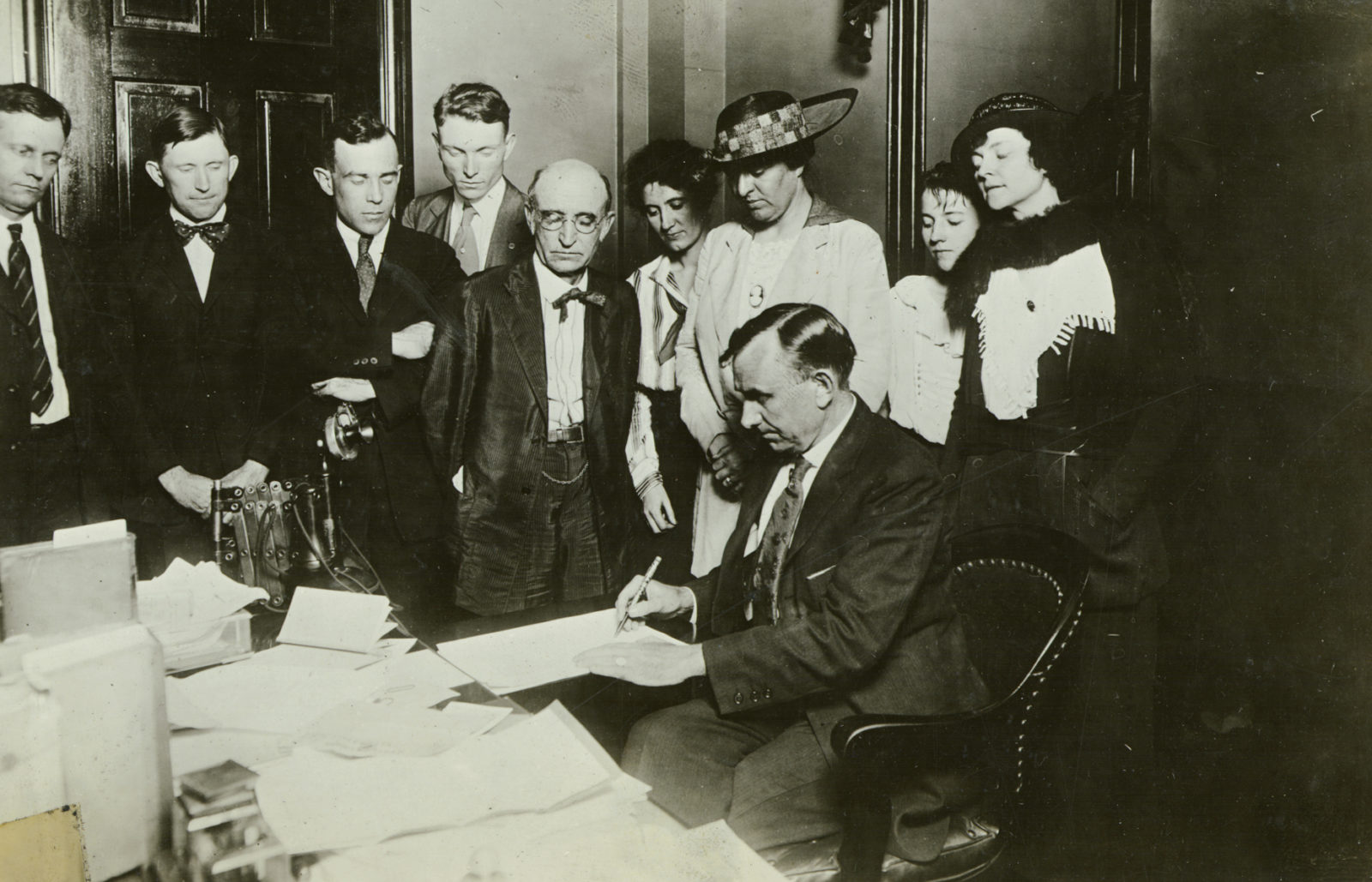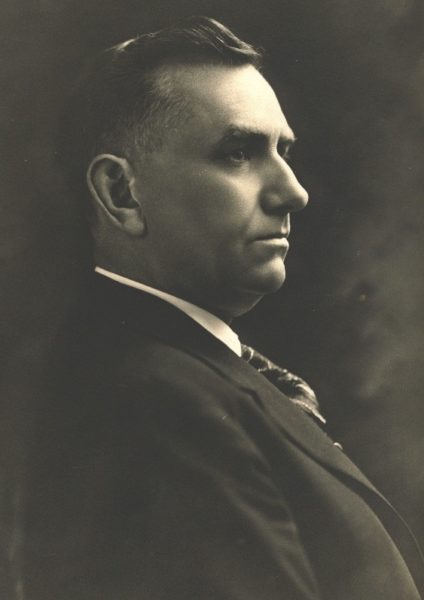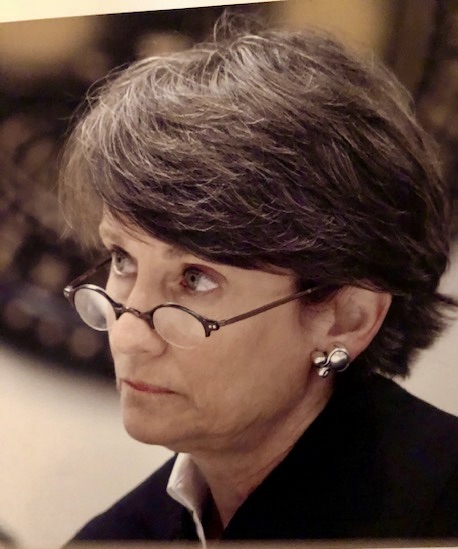My great-grandfather, (Tennessee) Gov. A.H. Roberts, and I had little in common. He was a lawyer, farmer and educator in the early 20th century at a time when opportunity was reserved for white males. What we shared, however, is the privilege of having served as a judge in the chancery court. That I was able to do so was in significant part because of what my great-grandfather did 100 years ago.

In 1920, Gov. Roberts called a special session of the Tennessee Legislature for the purpose of deciding whether to ratify the 19th Amendment recognizing women’s right to vote. Tennessee was in a pivotal position, because it was the only remaining state where suffragists had a realistic prospect of picking up the final 36th vote necessary for ratification.
Carrie Chapman Catt, founder of the League of Women Voters and president of the National American Woman Suffrage Association, had been inundating Gov. Roberts with telegrams asking him to call the special legislative session so that ratification could be accomplished. Both knew that women’s suffrage would be a big fight.
A.H. Roberts loved being governor even though the times called for every political talent he had. Several articles describe Gov. Roberts as having a “great capacity for friendship.” According to his grandson, my father Paul Capps, the governor was a vigorous man with a sense of fun. He must have felt somewhat unlucky that the battle for the women’s vote in Tennessee occurred on his watch. After all, Tennessee was sitting in a sea of states that had either voted “no” on the vote for women or had sidestepped the issue.

Many Tennesseans and those of the neighboring states thought that the push for women’s full suffrage was an attack on the Southern way of life and on the sanctity of a woman and her place in the home. The Southern Women’s League for Rejection of the Susan B. Anthony Amendment and other groups mounted a formidable attack on suffrage. A typical flier urged people to turn out for a mass meeting at the Ryman Auditorium “to save the South from the Susan B. Anthony Amendment and federal suffrage force bills.“
In 1920, it was accepted as a mantra that the women’s vote would disturb the homogeneity of families, promote divorces, and multiply bachelors and old maids.
In the summer of 1920 Roberts was under fire because the Democratic primary for governor was set for Aug. 7. Roberts had decided to seek a second two-year term, so the clamor for the special session put him in a precarious place. The Nashville Banner was firmly in his corner on re-election but was opposed to women’s suffrage. The Tennessean favored the vote for women but was anti-Roberts and attacked him vehemently and often. It was not wise to favor one’s enemies and go against friends, but in early 1920 Roberts had revealed his strong support for suffrage by notifying the Oklahoma and West Virginia governors that they should also vote for ratification.
A provision in the state constitution that prohibited the Legislature from acting on any federal amendment submitted after the members were elected was a legal barrier between Roberts and the special session for suffrage. He had been touting law and order against the brutal racial lynchings in the state, so he was bound to recognize and follow the law.
Pressured by the League of Women Voters and other women’s groups, President Woodrow Wilson telegraphed Gov. Roberts urging him to call the special session and to set aside concerns over its possible illegality. Roberts was considered to be a Wilson Democrat with the pluses and minuses that entailed. Roberts wired back: “I wholeheartedly favor ratification of the 19th Amendment. Will include this subject in the call for extra session of Legislature if legal department advises that ratification can now be made.” When the legal issue was resolved through an opinion from the state attorney general, Gov. Roberts set the special session on Aug. 9, 1920, two days after his successful but hard-fought campaign for the Democratic gubernatorial nomination.
As the legislators assembled, Roberts opened the session, stating, “Tennessee occupies a pivotal position upon this question.The eyes of all America are upon us. Millions of women are looking to the Tennessee Legislature to give them a voice and share in shaping the destiny of the republic. … I submit this issue to you as perhaps the most far-reaching and momentous one on which any body of men has been called to pass since the establishment of our government.”
He then rolled up his sleeves and summoned individual legislators to his office for a “talking to.”
According to Elaine Weiss’ book, The Woman’s Hour, this personal message to the Legislature conveyed his mission and his passion, and he proved to be among the most faithful and courageous suffrage men in the capital. Fellow lawyers, including his close friend and House Speaker Seth Walker, fought openly against him on this issue. The suffragists won by only one vote—that by young Rep. Harry Burn from Niota, Tennessee, who took his mother’s advice and switched positions to vote for suffrage.
After the Legislature’s vote approving women’s suffrage, and with the help of Seth Walker, the “antis” secured an order from the circuit court, directing the governor not to certify the special session result to Congress. Determined to block further legislative action, 36 anti-suffrage House members fled the state for Alabama. The order was dissolved when Roberts fought back with emergency proceedings in the state Supreme Court. House members returning from Alabama got their revenge, however, adding to the number of enemies that Roberts collected during the remainder of his term.

None of the success of the 1920 suffrage effort in Tennessee was possible without the League of Women Voters, numerous women’s organizations and women such as Frankie Pierce, Anne Dudley and Carrie Chapman Catt. Gov. Roberts knew that the special session vote would linger in its consequences. He is quoted in the Tennessee Historical Quarterly article “The Bitterest Fight” as predicting that the struggle was so acrimonious that leaders of both sides would suffer politically for their actions. After ratification, many suffragists such as Carrie Chapman Catt energetically supported Roberts in this second campaign for governor, and numerous suffragists and their male supporters hit the campaign trail for him.
In the end, it was the strong turnout of Republican women voters in East Tennessee that probably provided the margin of victory for the Republican slate—Alf Taylor for governor and Warren G. Harding for president.
From what I understand of my great-grandfather, the relationships he forged with the women and men in the struggle for ratification of the 19th Amendment were an important compensation for a man whose highest value was friendship. Although his term as governor was beset with tax reform conflict, racial violence, labor strife and continuing attacks on ratification, his enduring accomplishment is his role in the enactment of women’s suffrage.
- Read more about Vanderbilt’s 19th Amendment commemoration.
- Learn about women’s history at Vanderbilt.
- Connect with the Margaret Cuninggim Women’s Center at Vanderbilt.